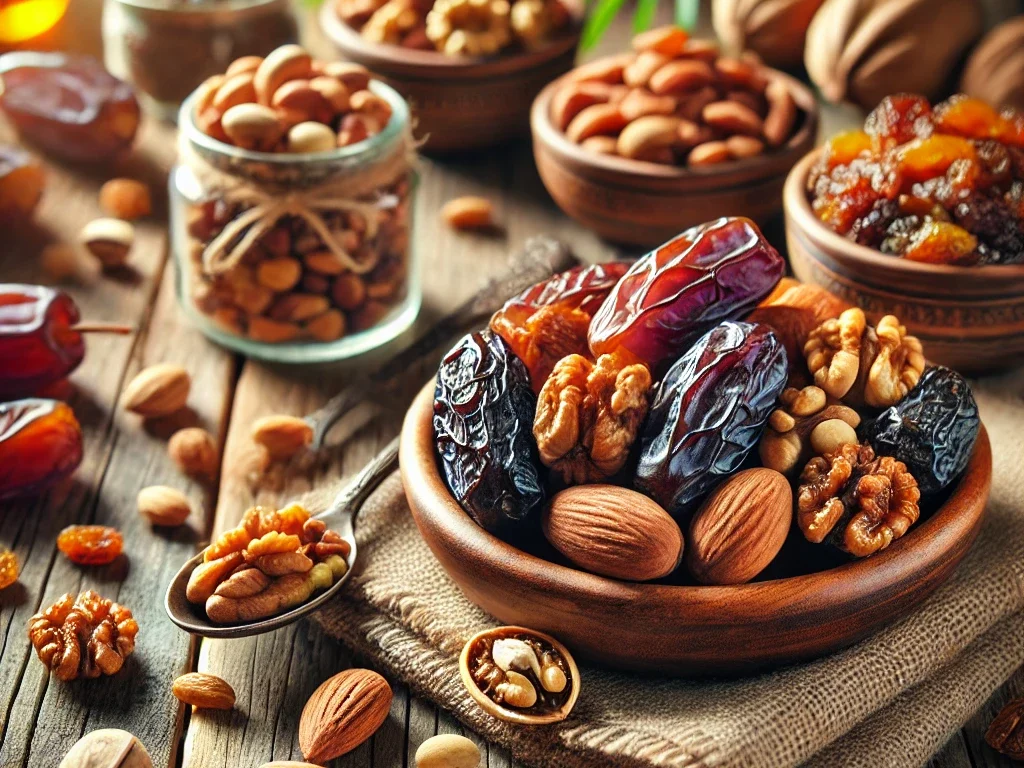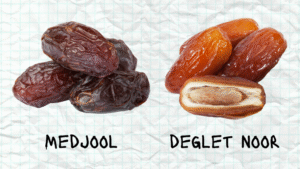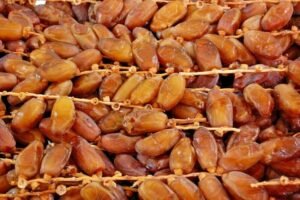Introduction to Arabian Dates
Arabian dates maintain a prestigious place in the tapestry of human civilization, tracing their origins returned lots of years in the fertile oases of the Arabian Peninsula. Renowned for his or her amazing sweetness and flexibility, dates have transcended their reputation as an insignificant fruit, evolving right into a image of sustenance, prosperity, and cultural identification across severa societies. Historical evidence indicates that the cultivation of dates began as early as 4000 BC, considerably influencing the economies and diets of ancient civilizations in the region. These nutrient-wealthy end result were an essential nutritional staple, boasting high ranges of carbohydrates, fibers, nutrients, and minerals, making them an invaluable resource for groups in arid climates.
The significance of Arabian dates extends beyond nutritional cost; they have got additionally played a critical position in alternate, international relations, and social customs. The date palm, “Phoenix dactylifera,” have become synonymous with Arabian identity, with its end result exchanged as gifts, used as foreign money, and respected in spiritual practices. The cultivation and harvesting of dates are steeped in traditions developed over generations, reflecting the deep-rooted connection between the fruit and the people of the Arabian Peninsula.
Moreover, dates had been celebrated in folklore, poetry, and culinary traditions, serving as a splendid focal point of communal lifestyles at some stage in festive occasions and gatherings. Thus, as we delve deeper into the records of Arabian dates, we discover a narrative interwoven with the evolution of societies, underscoring their cultural significance past mere sustenance. The saga of dates is a testament to human resilience and the capacity to adapt and flourish in difficult environments, leaving an indelible mark on both the history of the vicinity and its wealthy cultural heritage.
The Historical Significance of Dates
The history of dates is a rich narrative that dates again lots of years, tracing their cultivation from historical Mesopotamia, in which they have been one of the earliest cultivated end result. As early as 4000 BCE, dates were considerably harvested and utilized as a staple food, offering critical vitamins that supported the growth of early civilizations. This fruit not best served as a critical supply of sustenance but additionally played a crucial position within the day by day lives and diets of the people in these historic societies.
Furthermore, dates had been a fundamental factor of exchange routes that related various cultures throughout the Arabian Peninsula and past. The change of dates facilitated financial relationships, fostering connections between merchants and communities. Not handiest did they improve the nearby weight-reduction plan, however in addition they have become a valuable commodity that motivated alternate dynamics inside the location. Their significance is obvious in ancient texts, which include historical statistics and scriptures, which frequently mention dates as a crucial food supply and image of abundance.
In addition to their dietary fee, dates held profound cultural and religious importance at some stage in records. They were regularly associated with great events and rituals, symbolizing hospitality and generosity. In Arabian way of life, dates stay respected not only as a delicacy but also as an critical element of conventional ceremonies and celebrations. This connection between dates and vital ancient moments underscores their function in shaping societal norms and practices across generations.
By analyzing the historical importance of dates, we gain insight into their effect on civilization and way of life. The continuity of their cultivation and utilization speaks to their enduring legacy, reinforcing the notion that dates are not merely a fruit however a essential component of human history, connecting human beings throughout time and geography.
Economic Impact of Date Palm Cultivation
The date palm, versatile and resilient, has played a considerable position inside the monetary landscape of the Arabian vicinity in the course of records. The cultivation of date fingers has served as a crucial source of sustenance and profits for communities, significantly in barren region environments in which arable land is scarce. Dates, with their high nutritional value and lengthy shelf existence, have become a staple food item, making sure food safety and contributing to nearby economies.
As early as the historic civilizations of Mesopotamia and Egypt, dates had been precious commodities, frequently utilized in change and as a form of foreign money. They had been no longer simplest consumed regionally but additionally exported to neighboring areas, wherein they were esteemed for their sweetness and health blessings. The alternate of dates facilitated the formation of essential exchange routes, linking Arabia to regions like Persia, the Mediterranean, and beyond. These routes allowed for the exchange of goods, fostering cultural and monetary interactions that strengthened the wealth of neighborhood communities.
The monetary significance of date palm cultivation prolonged past local markets to international commerce. Historical exchange networks, together with the Silk Road, enabled traders to move dates to far-off lands, increasing their attain and impact. This change now not best generated good sized sales for Arabian traders however also brought dates to various culinary traditions across the globe. By organising a reputation for terrific dates, Arabian palm cultivators were capable of beautify their social standing and sell nearby economic prosperity.
In modern instances, the economic significance of date fingers persists, with cultivation evolving into a business powerhouse. Countries in the Arabian Peninsula have invested in agricultural technologies to optimize date manufacturing and advertising. By tapping into both local and global markets, date hands hold to contribute to the monetary properly-being of the vicinity, showcasing the iconic legacy of this splendid fruit and its integral position in alternate. Historical and contemporary financial dynamics monitor the profound affect of date palm cultivation on both local economies and worldwide commerce.
Cultural Significance and Traditions
Dates preserve a outstanding area in Arabian way of life, extending far beyond their dietary price. They symbolize hospitality and are regularly the first object presented to visitors as a sign of welcome and admire. This subculture stems from the deep-rooted belief that sharing meals enhances bonds among individuals and strengthens communal ties. The generosity displayed through the presenting of dates embodies the center values of Arabian society, reflecting a long lasting dedication to warm temperature and hospitality.
In addition to their function as a gesture of hospitality, dates characteristic prominently in various gala’s and celebrations during the year. One of the most sizable occasions for eating dates is in the course of the holy month of Ramadan. The speedy is damaged each evening with dates, as is the sunnah, a lifestyle rooted in Islamic teachings. This exercise isn’t always simplest an expression of non secular faith but also serves to replenish electricity after a day of fasting. Dates are often observed by using water or milk, growing a nourishing and revitalizing meal at sunset.
Cultural folklore additionally enriches the significance of dates, as many proverbs and anecdotes spotlight their significance. For example, it’s miles common to hear sayings that mirror the idea of “a date an afternoon continues the starvation away,” emphasizing their role in sustenance. Family gatherings frequently characteristic dates as a part of conventional candies, selling togetherness and celebratory spirit. The sharing of dates during large life occasions, inclusive of weddings or births, similarly cements their position as staples in Arabian customs.
Overall, the cultural importance surrounding dates reveals a deep connection to hospitality, subculture, and familial bonds in Arabian society, making them a lot more than merely a fruit, but a symbol of heritage and community.
Health Benefits of Dates: A Historical Perspective
Throughout records, dates have earned a outstanding region in various diets, mainly in Arabian cultures. Revered for their dietary profile, these fruiting our bodies are wealthy in dietary fiber, crucial vitamins, and natural sugars. Historically, dates supplied sustenance to the nomadic tribes of the Arabian Peninsula, serving as a not unusual food source crucial for staying power in harsh environments. Their high caloric content made them a super choice to sustain strength in the course of long journeys.
The dietary fee of dates is extremely good. A usual serving of dates is weighted down with dietary fiber that now not best assists in digestion but also contributes to satiety, assisting to stave off hunger. In addition, dates are fortified with numerous nutrients, such as B nutrients, which play a crucial role in energy metabolism, as well as diet K, essential for bone fitness. Their herbal sugars, which include glucose, fructose, and sucrose, provide an on the spot power boost, making them a preferred choice for those engaged in bodily activities.
Moreover, dates have a storied location in traditional Arabian remedy, in which they had been utilized for their potential fitness blessings. They had been frequently encouraged for reinforcing digestive health, as the fiber aids gut functioning. Additionally, the anti inflammatory properties attributed to dates recommend their use in decreasing inflammation and promoting universal wellness. Interestingly, they have been also employed as home treatments for numerous ailments, inclusive of breathing problems and anemia, highlighting their medicinal versatility.
The enduring legacy of dates is rooted not handiest of their dietary offerings however also of their historical significance. As we continue to discover the multifaceted blessings of dates, we’re reminded in their essential function in each conventional diets and current fitness practices.
The Role of Dates in Modern Arabian Society
In current Arabian society, dates maintain to hold great cultural, financial, and dietary fee. The rich records of date cultivation has seamlessly transitioned into present day practices, making sure that those culmination continue to be indispensable to both each day lifestyles and various celebrations. Traditional cultivation methods are being preserved through the efforts of nearby farmers, who’re committed to retaining the historical past of date palms while concurrently embracing advancements in agricultural era. This willpower now not only sustains the local financial system however also contributes to the environmental conservation of date-generating regions.
The growth of date production has transformed right into a worldwide enterprise, with Arabian dates now being exported to markets worldwide. This increase in demand has prompted producers to conform and innovate, accordingly enhancing the cultivation and processing of dates. As a result, new merchandise derived from dates, such as date syrup, snacks, and electricity bars, have gained recognition, appealing to fitness-conscious purchasers globally. This broadened product range exemplifies the versatility of dates and their relevance in contemporary diets.
Innovations in Date Cultivation and Processing
Date cultivation has evolved significantly over the years, driven by advancements in agricultural practices and new technologies. One major area of innovation is the adoption of modern irrigation techniques. Traditional flood irrigation has been increasingly replaced by more efficient methods such as drip and sprinkler systems. These systems minimize water wastage, allowing farmers to use less water while still maintaining optimal growth conditions for date palms. This is especially crucial in arid regions where water scarcity poses a significant challenge.
Sustainable farming practices have also gained traction within the date cultivation industry. Integrated pest management (IPM) strategies are being employed to reduce reliance on chemical pesticides, promoting the health of both crops and the environment. Additionally, organic farming practices have found their way into date orchards, with many farmers now opting for organic fertilizers and natural pest control techniques. This shift not only preserves the integrity of the soil but also appeals to the growing market of health-conscious consumers seeking organic produce.
Advancements in harvesting techniques have further revolutionized date processing. Traditional hand-harvesting is being complemented or even supplanted by mechanical harvesters, which help improve efficiency and reduce labor costs. These machines are designed to gently collect dates without damaging the fruit or the trees, ensuring that the quality remains high. Furthermore, innovations in post-harvest processing technology, such as automatic washing and sorting systems, have streamlined operations, enabling farmers to maintain higher standards of hygiene and quality control.
In conclusion, the innovations in irrigation, sustainable farming, and harvesting techniques are transforming date cultivation. These advancements not only enhance the efficiency and profitability of date farming but also ensure the preservation of its rich heritage. As the industry continues to evolve, it remains committed to both productivity and sustainability, paving the way for future generations of date producers.
Preserving the Heritage of Dates for Future Generations
The heritage of dates extends far beyond their culinary value, representing an integral part of Arabian culture and history. As societies evolve, it becomes paramount to implement initiatives that ensure this ancient legacy is preserved for future generations. Education plays a pivotal role in this process, with programs specifically designed to inform younger individuals about traditional practices related to date cultivation and consumption. Schools and community organizations are increasingly focusing on integrating agricultural education that emphasizes the importance of dates, outlining their historical significance, nutritional value, and the unique cultivation methods passed down through generations.
Beyond educational initiatives, protecting heirloom date varieties is critical for maintaining the biodiversity and richness of date cultivation. Various agricultural programs are dedicated to the conservation of these heirloom varieties, which are often at risk due to modern agricultural practices focusing on uniformity and higher yields. By collaborating with local farmers and researchers, these initiatives aim to document and safeguard traditional date-growing techniques alongside the unique characteristics of each heirloom variety. This conservation effort not only preserves the genetic diversity of dates but also fosters a greater appreciation among consumers for the distinct flavors and textures that these varieties offer.
Celebrating the cultural significance of dates can further reinforce their place within Arabian heritage. Museums dedicated to the history of dates provide educational resources and displays showcasing their importance through artifacts, photographs, and narratives that resonate with visitors. Additionally, cultural events such as date festivals highlight the diversity of date products, culinary traditions, and the roles dates have played in social gatherings. These initiatives promote awareness and foster a sense of pride within communities, ensuring that future generations understand not only the value of dates but also their role in shaping and preserving rich Arabian traditions.
Conclusion: Embracing the Legacy of Arabian Dates
The journey through the profound history and significance of Arabian dates reveals a multifaceted legacy that transcends mere sustenance. These succulent fruits, treasured since ancient times, embody resilience, culture, and a rich communal spirit. The cultivation of dates has sustained countless generations, playing an integral role in the livelihoods and traditions of communities across the Arabian Peninsula. As we’ve explored throughout this post, the date palm has been a source of nourishment, wisdom, and even spiritual sustenance, deeply intertwined with the region’s identity.
This sweet fruit is not only a resilient crop capable of thriving in harsh climates, but it also serves as a bridge connecting us to the past, celebrating the agricultural prowess and ingenuity of the people who cultivate it. Each variety of date carries with it stories of cultural heritage and regional pride, extending an invitation for us to partake in the culinary and communal rituals that elevate these fruits to symbols of sharing and hospitality.
As we reflect on the significant role that Arabian dates have played both historically and in contemporary society, one is inspired to further incorporate them into our own lives. From enhancing our diets with their nutritional benefits to celebrating their cultural resonance during gatherings, dates offer a delicious way to connect with the past while promoting a sustainable future. This sweet legacy deserves acknowledgment and appreciation beyond the realms of tradition. Therein lies an opportunity for us to explore the broader narrative of Arabian heritage, enriching our understanding of this remarkable fruit while honoring the resilience and legacy it represents.



